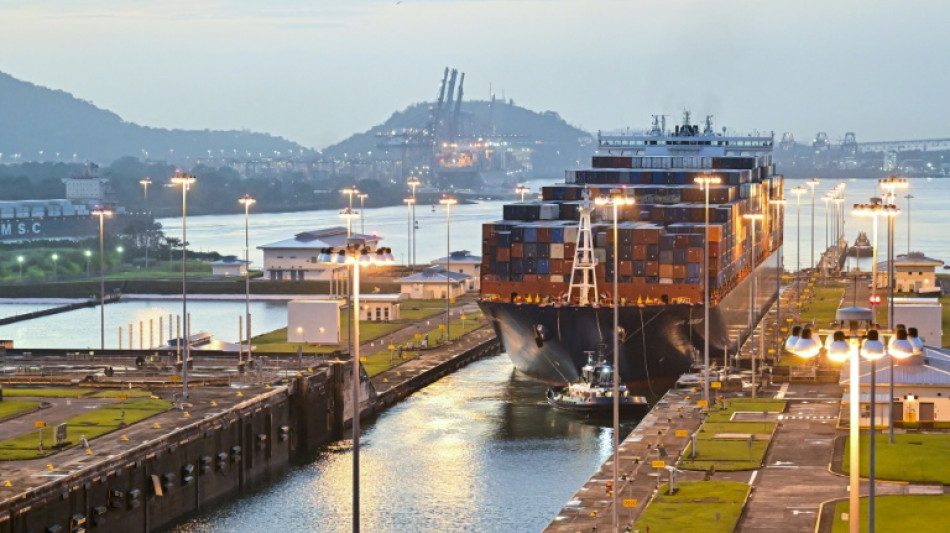
-
 Onana faces date with destiny as Man Utd chase Lyon win
Onana faces date with destiny as Man Utd chase Lyon win
-
Lessons in horror with Cambodia's Khmer Rouge tribunal
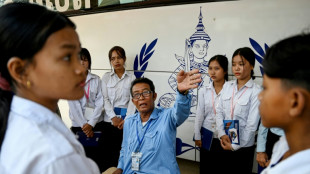
-
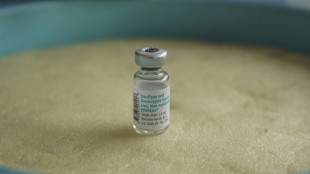 Pandemic agreement: key points
Pandemic agreement: key points
-
Paramilitaries declare rival government as Sudan war hits two-year mark
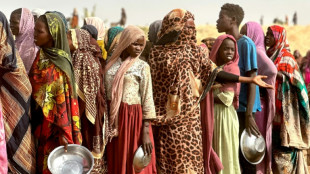
-
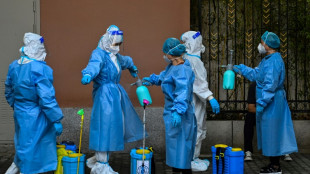 Landmark agreement reached at WHO over tackling future pandemics
Landmark agreement reached at WHO over tackling future pandemics
-
'La bolita,' Cuban lottery offering hope in tough times

-
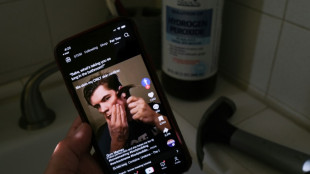 'Toxic beauty': Rise of 'looksmaxxing' influencers
'Toxic beauty': Rise of 'looksmaxxing' influencers
-
Facebook added 'value' to Instagram, Zuckerberg tells antitrust trial
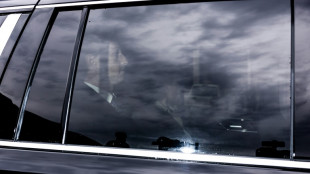
-
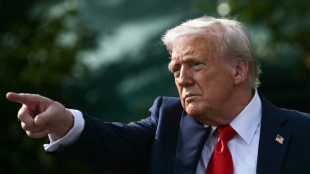 Trump signs order aimed at lowering drug prices
Trump signs order aimed at lowering drug prices
-
Paramilitaries declare rival government as Sudan war enters third year
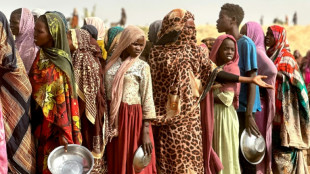
-
 Nvidia expects $5.5 bn hit as US targets chips sent to China
Nvidia expects $5.5 bn hit as US targets chips sent to China
-
Emery targets 'next step' for Aston Villa after Champions League heroics

-
 'Gap too big' for Dortmund after first leg, says Guirassy
'Gap too big' for Dortmund after first leg, says Guirassy
-
Maradona's daughter says doctors could have prevented his death
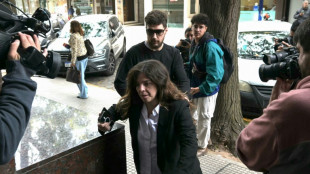
-
 Barcelona 'justified' semi-final spot despite Dortmund loss, says Flick
Barcelona 'justified' semi-final spot despite Dortmund loss, says Flick
-
'We thought the tie was over': Dembele admits PSG switched off against Villa

-
 Wine consumption falls heavily into the red
Wine consumption falls heavily into the red
-
Barca through to Champions League semis despite Guirassy hat-trick

-
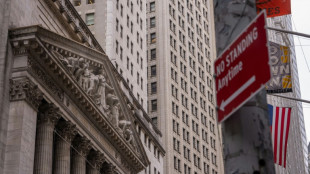 Global stocks mixed amid lingering unease over trade war
Global stocks mixed amid lingering unease over trade war
-
PSG survive Aston Villa scare to reach Champions League semis

-
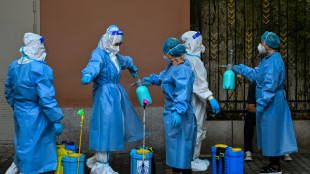 Pandemic treaty talks fight late hurdles
Pandemic treaty talks fight late hurdles
-
Trump resurrects ghost of US military bases in Panama

-
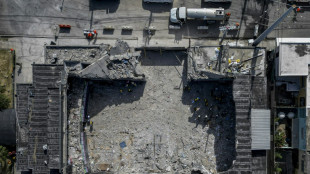 Family seeks homicide charges against owners of collapsed Dominican nightclub
Family seeks homicide charges against owners of collapsed Dominican nightclub
-
Sudan paramilitary chief declares rival government two years into war
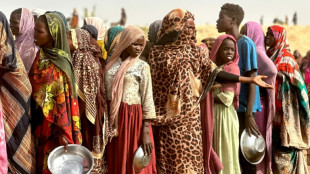
-
 Boeing faces fresh crisis with US-China trade war
Boeing faces fresh crisis with US-China trade war
-
Trump eyes slashing State Department by 50 percent: US media

-
 Canada offers automakers tariff relief, Honda denies weighing move
Canada offers automakers tariff relief, Honda denies weighing move
-
Facebook added 'value' to Instagram, Zuckerberg says in antitrust trial
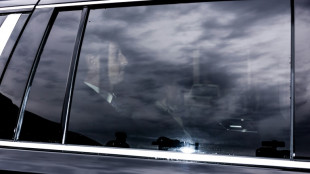
-
 French Ligue 1 clubs vote to break TV deal with DAZN
French Ligue 1 clubs vote to break TV deal with DAZN
-
Peru court sentences ex-president Humala to 15 years for graft
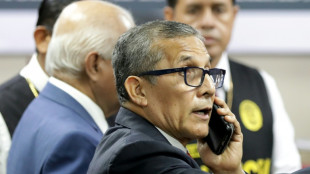
-
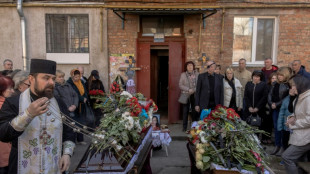 Sumy buries mother and daughter victims of Russian double strike
Sumy buries mother and daughter victims of Russian double strike
-
Trump says ball in China's court on tariffs
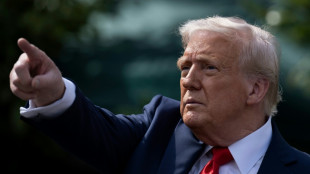
-
 Kane urges Bayern to hit the mark against Inter in Champions League
Kane urges Bayern to hit the mark against Inter in Champions League
-
Trump ramps up conflict against defiant Harvard
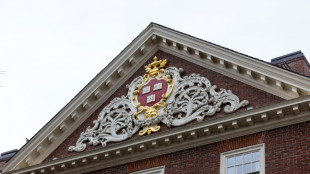
-
 Arteta feeding Arsenal stars 'opposite' of comeback message
Arteta feeding Arsenal stars 'opposite' of comeback message
-
France's Macron honours craftspeople who rebuilt Notre Dame
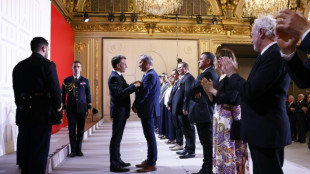
-
 Watkins left on Villa bench for PSG return
Watkins left on Villa bench for PSG return
-
Chahal stars as Punjab defend IPL's lowest total of 111 in 'best win'

-
 French swim star Marchand considered taking year-long break
French swim star Marchand considered taking year-long break
-
Chahal stars as Punjab defend IPL's lowest total of 111

-
 Universal Studios, Venice Beach to host LA 2028 events
Universal Studios, Venice Beach to host LA 2028 events
-
IOM chief urges world to step up aid for Haiti
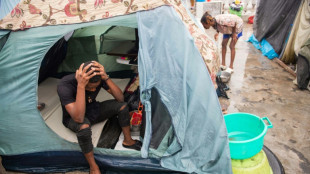
-
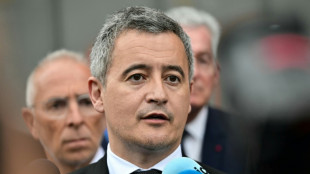 French prisons hit by mystery arson and gunfire attacks
French prisons hit by mystery arson and gunfire attacks
-
Alcaraz follows Ruud into Barcelona Open last 16

-
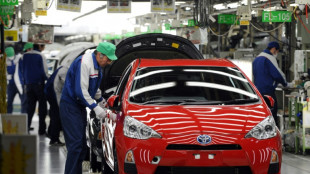 Stocks rise on bank earnings, auto tariff hopes
Stocks rise on bank earnings, auto tariff hopes
-
Trump showdown with courts in spotlight at migrant hearing
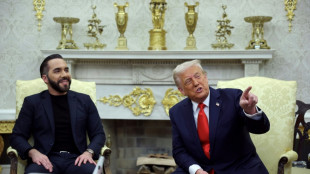
-
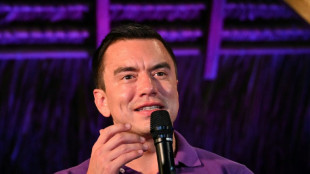 Ecuador electoral council rejects claims of fraud in presidential vote
Ecuador electoral council rejects claims of fraud in presidential vote
-
Russia jails four journalists who covered Navalny

-
 Trump says China 'reneged' on Boeing deal as tensions flare
Trump says China 'reneged' on Boeing deal as tensions flare
-
Trump eyes near 50 percent cut in State Dept budget: US media


Trump resurrects ghost of US military bases in Panama
US President Donald Trump's bid to take back control of the Panama Canal has put his counterpart Jose Raul Mulino in a difficult position and revived fears in the Central American country that US military bases will return.
After Trump vowed to reclaim the interoceanic waterway from Chinese influence, US Defense Secretary Pete Hegseth signed an agreement with the Mulino administration last week for the United States to deploy troops in areas adjacent to the canal.
For more than two decades, after handing over control of the strategically vital waterway to Panama in 1999 and dismantling the bases that protected it, Washington has regularly conducted maneuvers in the country.
So what is changing and why is the new agreement causing controversy?
- Will US military bases return? -
Although the agreement does not allow the United States to build its own permanent bases, Washington will be able to maintain a long-term rotational force in Panama, similar to the one it has in Australia and other countries, for training, exercises and "other activities."
The United States will be able to deploy an unspecified number of personnel to three bases that Washington built when it previously had an enclave in the canal zone.
That is a "flagrant violation" of the constitution, which prohibits foreign bases, and the 1977 handover treaties that establish the "neutrality" of the canal and permit only Panama to have military forces on national territory, Euclides Tapia, a Panamanian professor of international relations, told AFP.
But there is a loophole: one of the treaties "allows the US to defend the canal when it feels the neutrality is jeopardized," said Will Freeman, an expert at the Council on Foreign Relations, a US-based think tank.
Benjamin Gedan, former director for South America on the US National Security Council, argues that Panama has cooperated with the United States in securing the canal.
Panamanian lawyer Arturo Hoyos sees no violation of laws or treaties, as the new agreement allows "joint" operations.
- Is Mulino in trouble? -
Mulino's government says that the facilities and land belong to Panama and will be for "joint use" by US and Panamanian security forces.
He maintains that he has not ceded an inch of sovereignty to Trump, a natural right-wing ally
The agreement is a "trade-off" because it "limits the Trump administration's pressure tactics and hostility and maybe the scope of the concessions" by Panama, Freeman said.
"The risk that nobody's pricing in, at least on the US side, is that they make Mulino a lame duck" by humiliating him, leaving the Panamanian leader "unable to govern," he added.
Former presidential candidate Ricardo Lombana accused Mulino of "camouflaging" military bases and disguising "surrender" as "cooperation."
"The United States is recolonizing and reoccupying us," said Julio Yao, who advised the Panamanian government in the 1977 negotiations.
Gedan, a professor at Johns Hopkins University, believes Panamanians "are not willing" to allow the return of US bases due to the trauma of the past occupation of the canal zone and the 1989 US invasion to overthrow dictator Manuel Antonio Noriega.
- What does Trump really want? -
The United States considers a Hong Kong company's operation of ports at both ends of the canal to be a threat to its national security.
"Trump wants to minimize the risk of Beijing blocking the canal to prevent the passage of military vessels in a potential conflict," Gedan said.
Natasha Lindstaedt, an expert at Britain's University of Essex, sees the US moves as "part of a larger conflict with China as the US is trying to curb China’s influence in Panama and the region more generally."
Freeman said that the Trump administration "most likely is trying to show that if it wanted to, it could close the canal to Chinese commerce as a way of exerting pressure on China, either not to invade Taiwan or in the event of a conflict over Taiwan."
"What we're seeing in Panama is also about Trump's doctrine of peace through strength," he said.
But Tapia was skeptical that China really poses a threat, suggesting the threats were aimed at boosting Trump's domestic support.
"Canada becoming part of the United States or saying that they will take over the canal and Greenland is just a gimmick aimed at the American public," he said.
P.Silva--AMWN